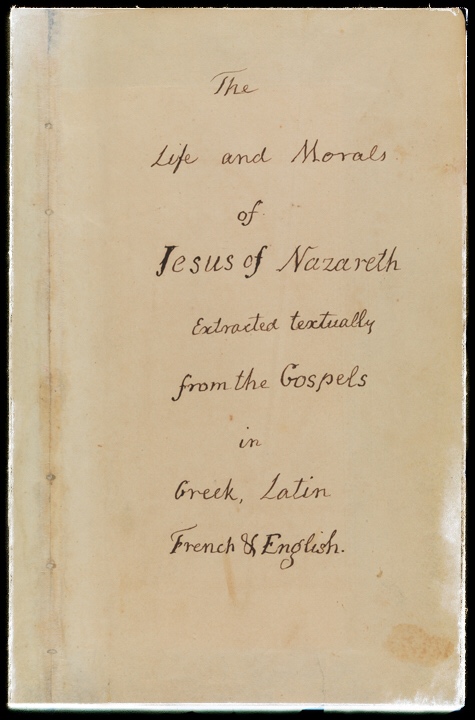Monday, July 27th, 2020

One of my blog-cast listeners recently sent me a text message asking if I would do a post on the authority of scripture. I said I would. When readers or listeners make requests of me, I try to comply — if I can do so without straying too far from my general eschatological/end-times focus.
For me, the tricky part of this assignment will be brevity. I intend to say as much as possible in as few words as feasible. Sigh: Do wish me all the best in this endeavor. A lot of very hefty books have been written about Biblical authority. If anyone wants to do some serious research and desires a recommendation or two, let me know. I got books to throw your way, figuratively.
As I write this, a reference book sits ready and within my reach. It is entitled The Enduring Authority of the Christian Scriptures, and was edited by a conservative theologian/professor named D. A. Carson. It is almost 1,200 pages long. But for those who want a quick and brief synopsis, Carson includes a final ~20 page chapter addressing Frequently Asked Questions. That final chapter covers a lot of relevant historical material and is well worth paging through.
The authority of the Bible has been ferociously challenged for over two hundred years now. In most of academia, the Bible is no longer taken seriously as a source of reliable, authoritative truth. Science now holds that exalted position, even though science itself is constantly in flux. Like so many of the specimens it explains, science, with a capitol S, is said to be by its nature changing or evolving; and we are taught to just roll with its inexorable evolution. Whichever turns it takes, Science itself remains unassailably authoritative. Science should always be regarded as indubitably correct, unless it corrects itself, of course. Then the latest science overturns the former. And that is because science is a self-correcting enterprise; and yet, in general, its progress is steady and sure. You can trust Science, because science establishes itself. And that is not a tautology. It is simply self-evident. Hip, hip hooray, Science!
Am I off track? Wasn’t I supposed to talk about the alleged authority of the Bible and not the indisputable authority of Science? Silly me. Sorry about the digression. Back I go to the Bible.
The questionable (or at least, constantly challenged) authority of the Bible whirls and whistles about as perhaps the most distressing issue for the contemporary Church. A lot of churches and even whole denominations are willing to overlook and even dispense with controversial and embarrassing sections of Scripture. They want to focus on portions of the Bible that are agreeable and ignore the sections that are disagreeable. In doing so, they either knowingly or (more likely) unknowingly imitate the third president of the United States, Thomas Jefferson.
Aside from the moral matter of how he treated his African-origin slaves, which is perhaps irrelevant to this discussion anyway, Jefferson once literally cut up the four gospels in order to eliminate those passages that did not fit his preferred anti-supernatural re-reading of scripture. Jefferson even compiled his deliberate extractions into a Smithsonian-held work entitled The Life and Morals of Jesus of Nazareth. But to avoid ruffling too many feathers, Jefferson did not allow this book to be published until after he died. According to Jefferson, yes, Jesus existed, but he was just a pious moral teacher who did no miracles and did not rise again from the dead. The sections of Matthew, Mark, Luke, and John that say otherwise need to be seen as fanciful inclusions by the inventive, proselytizing Gospel writers. Jefferson took it upon himself to helpfully excise the supernatural fluff, and left us the likely historical material.

Relatedly, but nearly two hundred years later, the fine and learned folks associated with the Jesus Seminar of the 1980s and 1990s undertook Jefferson’s same basic project of cutting away the churchy Christian mythology of the Gospel accounts from the (scientifically ascertained) actual history of the life of the obscure Jesus of Nazareth. So you might say that Thomas Jefferson was academically way ahead of his time, at least in terms of Biblical criticism and extraction. So welcome home to a new century, Mr. Jefferson; you did not miss much.
A willingness to extract what is worthwhile in the Bible from what is fanciful or false in the Bible is premised on the assumption that at least portions of the Bible are indeed fanciful or false. A lot of people, and even a lot of “woke” Christians, wholly accept that premise today. They do believe that some sections of the Bible should be deemed either fanciful or false, or both. This is a very attractive position for people who dislike what the Apostle Paul writes. Furthermore, I will tell you that we spent significant time in seminary learning about various said sections of scripture. To my seminary’s credit, most (but not all) of my professors were intent on establishing our confidence in Scripture, not undermining it. Not every professor and not every seminary does that, though. Even in Christian schools and seminaries, a real battle for the Bible is ongoing.
In my estimation, when it comes down to brass tacks, the real issue is not as much what someone believes about the Bible itself as what they believe about God himself. I believe the Bible is reliable and authoritative because I believe that the God described by the Bible was and still is capable of delivering on his promises and relaying and keeping his word. Admittedly, I first got this idea from the Bible. More accurately, I first got this idea from the Church, which first got this idea from the Bible, through which this idea was transmitted by a cohort of earnest early Christians back in the first century. So, basically I’m saying that I’m willing to believe what the first disciples of Jesus said about Jesus. It really all comes down to just that. Everything else that matters depends on just that. With regard to the authority of the Bible, ultimately everything hinges on the person of Jesus.
Do you believe that the first disciples of Jesus reliably relayed what Jesus said and did? I do, therefore I believe the Bible. I know: That sounds massively simplistic, I realize as much and acknowledge as much. But when all the arguments and all the books are distilled down to their essence, the basic issue is the reliability of the first and nearest witnesses to Jesus. I deem them sufficiently honest, and historically reliable, and their multiple portrayals as worthy of acceptance. Do you? If so, the Bible is what we have received as our authoritative written resource. If not, Science in all its latest and greatest wisdom beckons.
I agree, a high view of Scripture is needed to have any solid foundation for building a sturdy and meaningful theology. Once we start Jefferson-ing out the passages that unsettle us, our understanding of God moves from “I am who I say I am” to “God is who I say He is.”
LikeLiked by 1 person
What a comfort to know God’s Word is truth for all ages and people. ” The Solid Rock on which I stand”
LikeLiked by 1 person